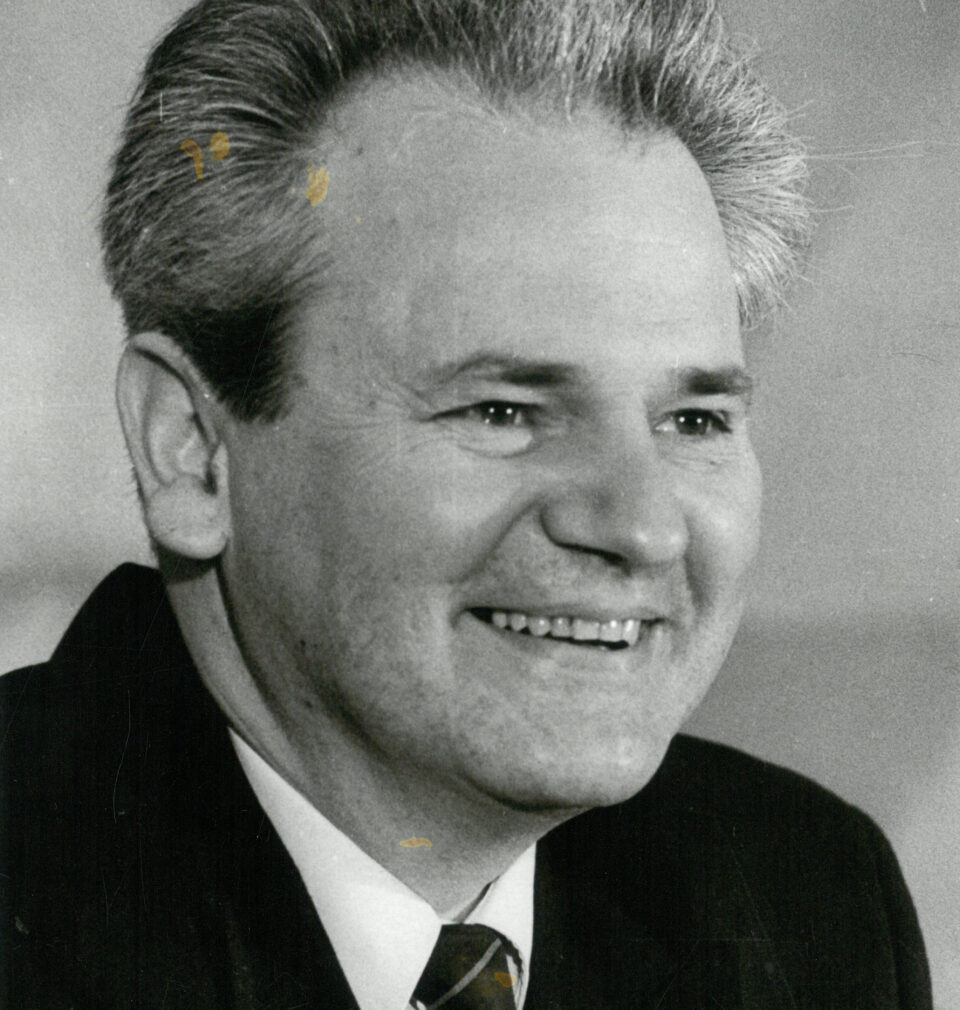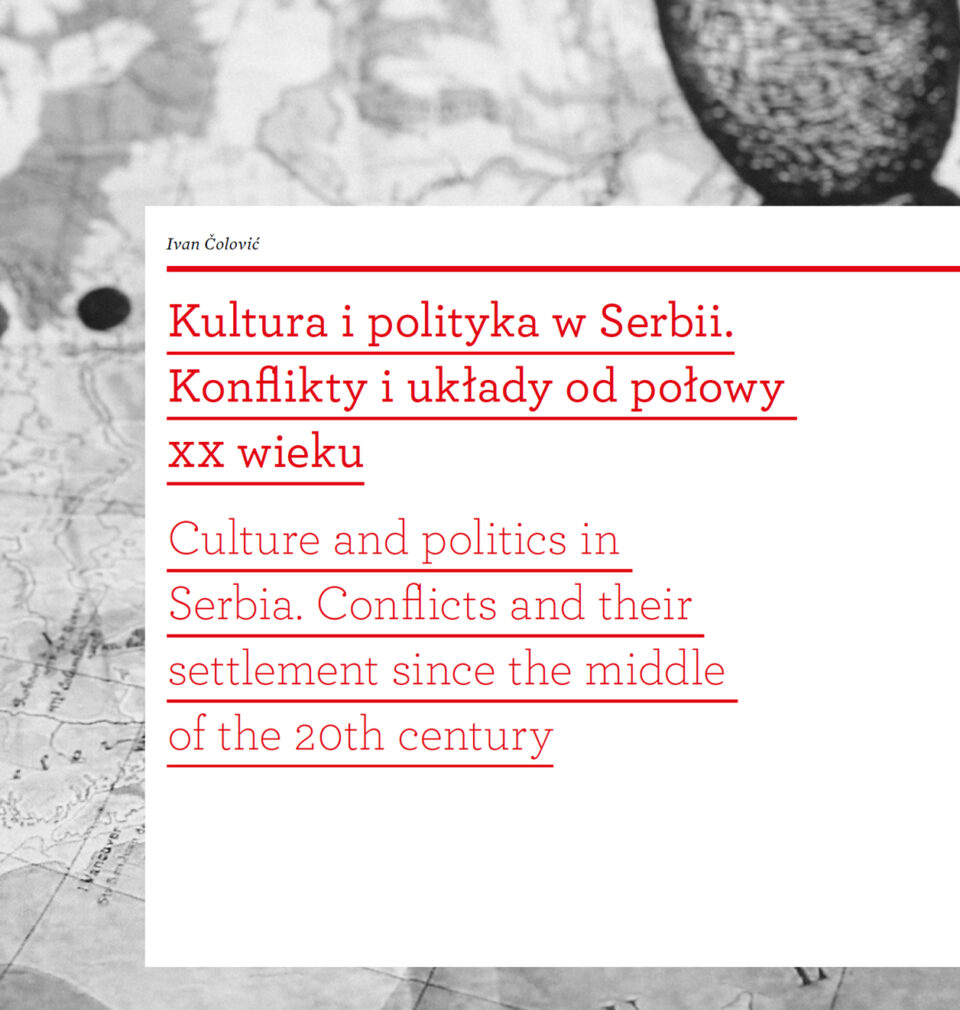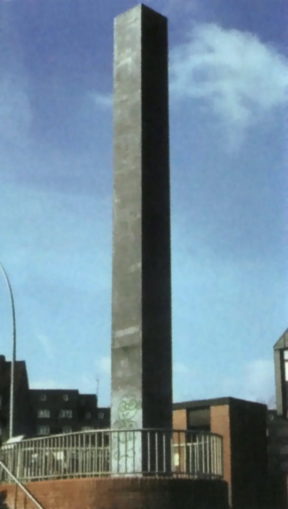
Culture and Politics
Culture and Politics in Serbia: Conflicts and Their Settlement Since the Middle of the Twentieth Century
Publication: 11 October 2021
TAGS FOR THE ARTICLE
TO THE LIST OF ARTICLESThe pattern of actions already taking place on the battlefield of the early 1990s called ‘ethnic cleansing’ had its ideological source in the model of an ethnically purified culture. In addition to that of well-known artists, writers and scientists, a contribution to the construction of ‘the Serbian spiritual space’, with which a national state territory should coincide, was made by popular culture, and in particular, by the new folk music, as well as rock music which drew on the ‘original’ Serbian musical tradition
Culture is held in high esteem in Serbia. It is respected, first and foremost, by the ruling elite, who consider it to be in their best interest to lend their support to the world of culture, to steer it to their own advantage, and to seek a guiding principle in it for themselves and a source of their own legitimacy. This interest in culture became pronounced after the Second World War, when Serbia became one of the republics of communist Yugoslavia. In effect, in peacetime, the Serbian communists simply continued the ‘cultural work’ begun during the war, when numerous theatrical, artistic, literary or folklore ‘sections’ were included in the effort to boost the fighting morale of the partisans and spread communist ideas.
Settlement no. 1: Play your fiddle and mind your own business
So, when – after the break with the Soviet Union in 1948[1] – the Yugoslav communists, including Serbian ones, stopped demanding that writers and artists be involved in building a new society by their choice of subject matter and means of artistic expression – i.e., when the doctrine of socialist realism in art was abandoned – the Serbian communists retained their interest in culture. A sort of ‘new deal’ was struck between politics and culture – and above all, elite art culture. Creative culture workers were granted full freedom to open themselves up to modern Western artistic trends and aesthetic ideas, while only passively contributing to the ruling ideology by not questioning its main symbols: Tito, the brotherhood and unity of Yugoslav nationalities, socialism, workers’ self-management and the country’s policy of non-alignment.
This settlement remained in effect right up until Tito’s death in 1980, and all along the ruling elite was able to silence, or at least marginalise, those who questioned the settlement or broke it. The latter began proliferating after the student unrest of 1968, so the party had to cope with a tidal wave of ‘ideological errors’, ‘failures’ and outright ‘enemy sabotage’ in culture. One of the peaks of the Serbian communists’ struggle against ‘ideological deviation’ was their crackdown on the ‘Wave Noir’ in Serbian cinema, whereby directors such as Makavejev, Žilnik and Pavlović were banned from directing films in Yugoslavia because they had been painting a gloom-and-doom picture of ‘our reality’[2].
Concurrently, the ruling elite in Serbia also strived for control over popular culture, especially since the mid-1960s, when the rise of entertainment media in print and on the air, as well as the advent of the record industry, accelerated the transformation of traditional folk culture. This primarily pertained to folk music, whose transformed genres, adapted to the new media and a mass audience, brought into question the very canon of the original folk music, as well as the idyllic image of the people appearing in that canon. This new, ‘newly composed’, music did not concern itself with political issues, nor did it in any manner ‘bother’ the powers that be, but it was, nonetheless, the target of severe criticism by the establishment, because the people portrayed in the new songs’ lyrics, as well as those listening to the songs, were allegedly adopting values of a Western consumer society and being, thereby, separated from their own authentic cultural tradition and from the value system that the socialist workers’ self-management society was building in Serbia. The showdown with the ‘Schund and Kitsch’ in culture was the main topic of the Cultural Action Conference which the Serbian communists organised towards the end of 1971. However, in this area – just as had happened in the field of high culture – a compromise was reached. A law was passed allowing the makers of pop culture to offer their products on the market without any official attestation of the products’ artistic value, as long as a surtax was paid on it (the ‘kitsch tax’, as it was dubbed colloquially), which in turn would provide funds to subsidise the economically less prosperous high culture.
Conflict no. 1 and a new settlement: We shall dance to the artists’ tunes.
After Tito’s death, the Serbian communists had an ever-harder time controlling what was happening in culture, as some important institutions in that field began to oppose them openly. Within the Writers’ Association of Serbia, the Committee for the Protection of the Freedom of Artistic Expression was formed in 1981, while a year later a similar body was formed by members of the Serbian Academy of Arts and Sciences. However, towards the middle of the decade, a significant change took place regarding what was at stake in the conflict between the ruling elite and the culture in Serbia. The regime’s critics from the world of culture, who up to that point had kept the struggle for liberal and democratic values (freedom of speech in particular) in the foreground of their engagement, began to give preference to Serbian national issues and values. They started to castigate the communist government for doing nothing about the position of inequality in which Serbian nation had found itself in Yugoslavia, for not protecting its national and cultural identity, and finally – something that would become a pivotal issue – for failing to solve the problems faced by the Serbs living in Kosovo, an autonomous province with an Albanian majority population.
At this juncture, the rising tide of ethnonationalist and separatist movements in all the Yugoslav republics already posed a serious threat to the very survival of Yugoslavia, which was followed by the weakening of the communist grip on power. Under those circumstances, in September 1987, power in Serbia was seized by Slobodan Milošević, who vowed to save both Yugoslavia and communism. However, he drew the political ‘energy’ he needed in order to achieve these two objectives from a source incompatible with either: Serbian nationalism. This strategy brought him closer to those opponents of the previous regime from the word of culture who had in the meantime moved over to the terrain of nationalism. Milošević adopted their main ideas and corresponding rhetoric, and they in turn accepted him as the new and genuine leader of the Serbian people[3]. This is how another deal was made between the ruling elite and culture in Serbia. Culture was liberated from the dictates of ideology because it had become the source of ideology and began to lend meaning to the work of politicians, i.e., legitimising their political and – soon to follow – military actions.
During the war in the former Yugoslavia (1991–1995 and 1999), the majority of the Serbian cultural elite – along with the mainstream media and the leadership of the Serbian Orthodox Church – justified and supported the political independence of ethnic Serbian territories within Croatia and Bosnia, as well as strengthening Serbian domination of Kosovo. Actually, these objectives, and the political and military measures to achieve them, were legitimised within an ideological frame constructed by none other than the Serbian cultural elite. These measures were represented as a continuation of the effort – allegedly forcibly interrupted by the creators of Yugoslavia, and later by the communists – to accomplish the final unification of all Serbs within a single state. This unification was represented as the main, if not the sole, objective to the realisation of which – ‘from time immemorial’, or at least since the legendary ‘fall of the Serbian kingdom’ on a Kosovo battlefield in 1389 – the entire Serbian culture, popular or elite, spiritual or secular, had been dedicated[4]. The pattern of actions already taking place on the battlefield of the early 1990s called ‘ethnic cleansing’ had its ideological source in the model of an ethnically purified culture. In addition to that of well-known artists, writers and scientists[5], a contribution to the construction of ‘the Serbian spiritual space’, with which a national state territory should coincide, was made by popular culture, and in particular, by the new folk music, dubbed ‘turbo-folk’, that used patriotic themes[6], as well as rock music which drew on the ‘original’ Serbian musical tradition.
A smaller segment of the cultural elite remained outside the deal made between culture and politics in Serbia under the Milošević regime. Hence, a relatively wide front made up of ‘dissidents’ in conflict with the communist regime, but lacking a unified political platform, was succeeded by a new intellectual opposition to the regime, smaller in numbers, but more cohesive in its platform and attached to liberal democratic values. It found itself at odds with its former fellow dissidents among the intellectuals who in the mid-1980s had given their preference to the national (‘Kosovo’) question over the issue of the democratic development of Serbia, and subsequently embraced Milošević as the man to solve this top priority problem. It is in them and their ethnonationalistic model of culture and society, and in their transforming this model into aggressive nationalist politics that this new opposition – which called itself Civil Serbia or the Other Serbia – saw the main reason why, at the beginning of the 1990s, Serbia embarked on a territorial war, thus compromising its own democratic development and European integration[7].
Crisis and renewal of the previous deal: Fear not; keep on playing
The fall of the Milošević regime in October 2000 was caused, among other things, by the fading of the support he enjoyed among the nationalistic cultural elite. Discontent began to grow within its ranks – as well as within the Serbian Orthodox Church – because of the lost wars in Croatia and Bosnia, and culminated with the three‑month NATO air war against Serbia and the withdrawal of Serbian forces from Kosovo in early summer 1999. Even though Milošević had followed the agenda articulated by the elite, and despite the fact that some of its prominent representatives occupied important positions in his regime, as well as in the media under his control, the question of its responsibility for the debacle was never raised. It was discussed only among the adherents of the Other Serbia, whose political weight remained relatively low even after the changes of October 2000. Still, a part of the new government, especially while its head was the President of the Democrat Party, Zoran Djindjić (who was assassinated in March 2003), closely identified itself with the programme of the democratic, ‘European’ path for Serbia, which also implied confronting the recent past. There were people who realised that such a confrontation implied raising the question of the responsibility of intellectuals and their institutions for the catastrophe that had befallen Serbia during Milošević’s time, rather than only holding the politicians, the military and the paramilitary units responsible for that catastrophe. However, this part of the new government lacked sufficient strength to tackle the problem of the responsibility of the cultural elite for the war and for the atrocities committed during it, so it was compelled into a ‘pragmatic’ policy of avoiding any confrontation regarding this problem, as well as a similar problem of the responsibility that should have fallen on the shoulders of the Serbian Orthodox Church.
After Djindjić’s assassination, the government in Serbia – quickly taken over by a coalition of political parties aligned with the new prime minister, Vojislav Koštunica, the President of the Democrat Party of Serbia – not only abandoned any direct dealing with the problem of confronting the past and with the responsibility of the Serbian cultural elite for the war, but renewed – under the pretence of avoiding ideological divisions in Serbia – good relations with precisely those representatives of this elite who had played the most important part in formulating and propagandising the nationalistic ideology that the Milošević regime had rested on. Along with their comeback to the main political scene during the Koštunica government, Kosovo climbed back to the top of the priority list of Serbian politics as the commonplace of the mythologico‑political discourse of the death and resurrection of Serbian nationhood, to which seasoned myth makers could add strength that was sufficient to push aside any sober discussion of the moral, social and economic recovery of Serbia.
Naturally, these tried and trusted ‘national workers’ in culture – who, after Djindjić’s assassination, found themselves once again in the role of irreplaceable collaborators of the Serbian government – spared no effort in interpreting away and condemning, as a topic ill-intentionally forced upon Serbia, any question of the responsibility of the Serbian cultural elite for the war or for Serbian nationalism in general. Such questions – they explained – were being raised by some non-governmental organisations, financed by Western foundations, with the goal of undermining the prestige of ‘the most important institutions of the Serbian nation’ – the Academy and the Church, the keepers of its identity – in preparation for taking over the economic resources of Serbia. Thus, the role of the principal internal enemies of Serbia reverted, as in the days of Milošević, to the so-called ‘globalists’, with added new labels for marking these enemies with more precision (‘transnational elite’, ‘post-national intelligentsia’, ‘missionary intelligentsia’), and the addition of the so-called ‘citizenists’ – a variety of democratic extremists who are often worse in their fanaticism than the most fanatical nationalist[8].
In addition to the ‘national workers’ who had been close to the Milošević regime, a number of liberal intellectuals who had opposed the regime – or at least shunned it – have found themselves among those who endorse or at least understand such accusations. Their endorsement has, perhaps, been decisive in preserving nationalism as the ideology of today’s Serbia even after the destructive and, for Serbia itself, disastrous wars that were inspired by this ideology. This liberal‑nationalist intelligentsia is attempting to construct a model of ‘good nationalism’ in which the attachment to the nation would somehow be in tune with respect for human rights and the rest of the values of liberal democracy. This attempt only further consolidated the belief that the purpose of politics is to serve the nation – the nation understood ethnically, in an essential way, as a God‑given natural community – and that the politicians ought to seek support for and directions of their service to the national culture, understood as some sort of temple in which the national spirit is invoked, embodied and spread throughout the nation, more often today called national identity.
Culture of no deal: Our fiddle ain’t for your ears
It should be said that in Serbia there still remain those who do not accept this nationalistic idea of culture and its political functions. There is an alternative cultural scene, made up of artists, writers, scientists and journalists gathered around certain non‑governmental organisations, media, art galleries, privately owned publishing houses or ad hoc projects. Their work is inspired by different kinds of incentives, by the desire for cooperation beyond national borders, by the need to resist the reduction of culture of serving the nation and becoming a mere replica of nationalism; or, simply, by the desire to do something different. There are people employed by government‑financed cultural institutions and by state universities who keep themselves out of the mainstream of nationalism. In today’s Serbia, they all have as much room for action as they have managed to conquer for themselves. How much it will expand or shrink depends mostly upon themselves.
At any rate, I cannot hope that the accommodation between politics and culture in Serbia – based, since the late 1980s, on respecting culture as the source of the ideology of the nationalist ruling elite – will soon be revoked. Nor is it likely that a rapprochement with the European community or a possible inclusion into it would necessarily mean an automatic, certain change in the dominant value system in Serbia, for it is still very much coloured by nationalism. Surely incentives would emerge to change that system, although, un‑ fortunately the process of European integration can itself provoke the strengthening of nationalism in its most extreme forms, which is already currently happening in some of the new additions to the Europe‑ an Union (although older members of the community are not spared that unpleasant experience either), where nationalist myths and resentments are being revived, all of which are compounded by the proliferation of extreme right‑wing groups. This means that those unwilling to go along with this – still in effect and quite likely stable – accommodation between politics and culture in Serbia, based on both of them serving the national cause, have to resign themselves to the fact that a new and better deal may be coming none too soon, and have to get used to living outside any deal, unenrolled in their national culture – uncultured, as it were – but free in return; which, to be truthful, is not such an unattractive position in which to be. Or could it be the basis for a new settlement?
Translated from Serbian by Vladimir Arandjelović
The essay has been published in: Wikfgang Petritsch, Goran Svilanović, Christophe Solioz (Eds.) SERBIA MATERS. Domestic Reforms and European Integration, Nomos Verlaggesellshaft, Badan Baden, 2009.
***
[1] It regards a resolution by the Information Bureau. After a conflict of the Communist Party of Yugoslavia with the Communist Party of the Soviet Union the Information Bureau of the Communist and Workers’ Parties passed (1948) a resolution expelling the Yugoslavian Party from this group under the charge of revisionism. Both the East and the West erected an iron curtain around Yugoslavia, austerity measures were introduced and for the supporters of Stalin – real and alleged – inhuman concentration camps were created on Goli otok (the Barren Island) and the neighbouring Adriatic islands, were the inmates worked slavishly in quarries and rehabilitated themselves.
[2] Pavle Levi, Desintegration in Frames: Aesthetics and Ideology in the Yugoslav and post-Yugoslav Cinema, Stanford 2007.
[3] Jasna Dragović-Soso, Saviours of the Nation: Serbia’s Intellectual Opposition and the Revival of Nationalism, London 2002.
[4] Ivan Čolović, The Politics of Symbol in Serbia, London 2002.
[5] Drinka Gojković, “The birth of nationalism from the spirit of democracy”; Olivera Milosavljević, “The abuse of the authority of science”; and Mirko Djordjevic, “Populist wave literature,” all three in Nebojša Popov (ed.), The Road to War in Serbia: Trauma and Catharsis, Budapest 2000.
[6] Eric Gordy, The Culture of Power in Serbia: Nationalism and the Destruction of Alternatives, Pennsylvania 1999.
[7] Nebojša Popov (ed.), The Road to War in Serbia: Trauma and Catharsis, Budapest 2000 and Danièle Sallenave (ed.), „Une autre Serbie“ Paris: Les Temps Modernes, no. 570–571, 1994.
[8] Svetozar Stojanović, “What is citizenism?,” in Serbia: The Democratic Revolution, New York 2003, pp. 162–164.
Copyright © Herito 2020



